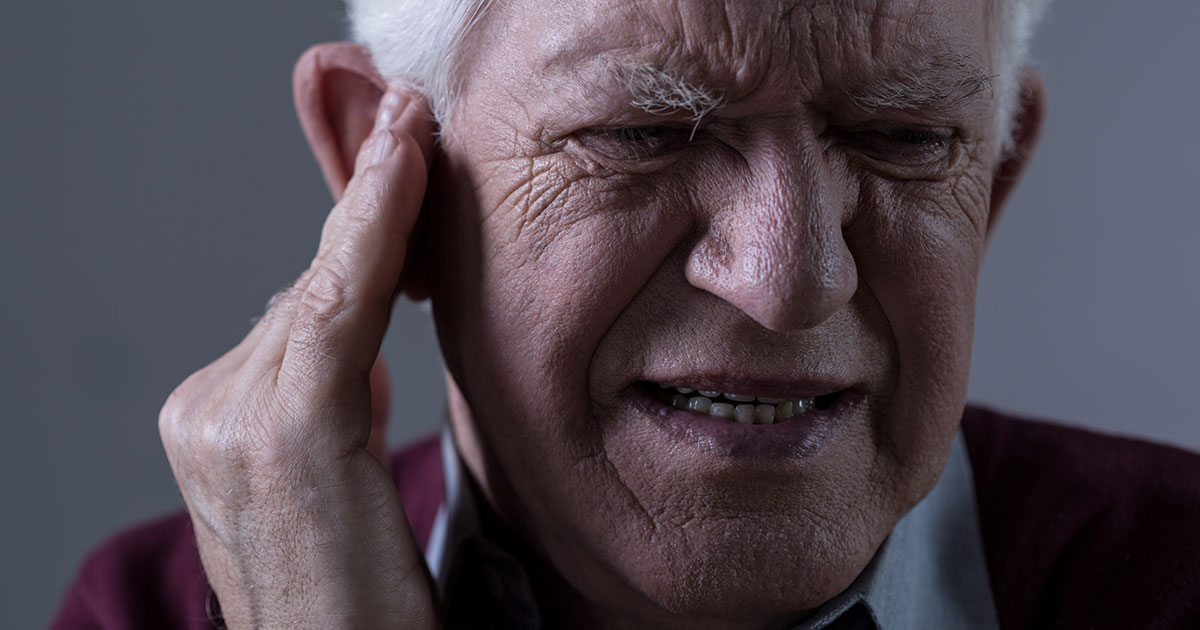TMJ And Ear Pain: Is There a Connection?
Posted On 2/15/2022 12:00:00 AM by Bruce Kanehl

Temporomandibular joint disorder (TMJ) is a problematic issue since it is the joint that makes biting and chewing possible. Most people who have this condition experience minor to severe pain around the joint. Symptoms of this disorder can be temporary and may disappear on their own, or they could be long-term and require medical intervention. The severity of TMJ pain will often vary, but the symptoms and signs are pretty consistent and are fairly easily detected but the trained eye.
Let's explore more about TMJ pain, the symptoms associated with the disorder, and how to treat it.
Signs of TMJ Dysfunction
TMJ Dysfunction is a common disorder that usually has the following signs and symptoms:
- Trouble or pain when chewing
- Reoccurring headaches
- Ringing in the ears
- Tenderness or pain in the jaw
- Difficulty in locking the jaw or lockjaw
Risks Associated with TMJ Dysfunction
Anyone can get TMJ dysfunction during their lifetime, but it tends to affect more women than men. Nonetheless, specific aspects put one at risk of these debilitating conditions. Some of the common risk factors linked to the TMJ disorder are as follows:
- An underbite or overbite
- Genetics
- Clenching or grinding the teeth
- Connective tissue diseases or disorders
- Arthritis
- Facial injury
- Ear pain and TMJ Disorder
- Autoimmune disorders
One of the main signs of TMJ disorder is chronic ear pain. For the most part, patients suffering from this condition often visit an ENT professional, assuming that they are suffering from an ear infection. For many cases, it can be challenging to diagnose TMJ disorder.
When TMJ disorder affects a patient’s ears, they often experience an irritating sharp pain that results in a dull ache around the ear area, which is why many believe they are suffering from an ear infection. Understanding what causes TMJ disorder can help a patient get appropriate treatment, especially when the symptoms mentioned above are accompanied by ear pain.
Sinus Symptoms and TMJ Disorder
When it comes to sinus signs among patients suffering from TMJ disorder, pressure and chronic pain of their sinus area are evident. These symptoms become prevalent even without inflammation, infection, or sinus disease.
For example, jaw muscles can create pain in the sinus area, which is challenging to diagnose. Often, tight, and inflamed muscles can cause sleep bruxism (grinding of the teeth) and overuse behaviors, which cause sinus symptoms.
TMJ therapy can help reduce jaw muscle problems and thereby help relieve symptoms related to the sinuses. Common treatments to alleviate sinus symptoms include bite plates, injection therapy, massage, and jaw muscle conditioning to relax the stressed, overworked muscles.
A patient who experiences these symptoms with no apparent link to illness or disease might have a TMJ disorder. For that reason, it’s essential to seek immediate medical care when you suspect you have TMJ to help alleviate your symptoms and resolve the issue as quickly as possible.
TMJ Dysfunction Treatment Options
Are TMJ Dysfunction disorders treatable? Studies show that for most people, TMJ disorder symptoms will often vanish on their own, so for many, they are only temporary. But, if the symptoms persist for an extended time, it’s important to know that there are treatment options you can consider.
Below are treatment options at your disposal:
- Facial massages: Visit an experienced masseuse or learn simple steps to perform the massages at home.
- Ice it: Doctors recommend icing the affected areas to help relieve pain and swelling in the affected regions. Over-the-counter medications can aid in pain management if the pain becomes intolerable.
- Oral Splints– help alleviate jaw pain and eliminate teeth grinding, which can be a crucial factor in your TMJ pain
- Surgery: While this is usually the last resort when treating TMJ disorder, it's a practical solution when you experience unbearable pain.
Get TMJ Treatment Today
Suppose you experience chronic ear pain that doesn’t seem to lessen. In that case, that doesn’t necessarily mean you have TMJ, which is why it is essential to visit the doctor or a dentist for a proper diagnosis to check whether the ear pain might accompany symptoms like popping sounds or a locked jaw. Above all, the only way to treat the condition with the seriousness it deserves is by consulting a specialist who’s well-versed with this condition. Get an appointment with our expert team at Kanehl Dental if you are experiencing TMJ symptoms.
Related Articles
Can Malocclusion Cause TMJ Pain?
Published on: 12/18/2023 12:00:00 AM
By addressing issues with malocclusion, you could also bring relief from any TMD-related issues.
Can Holiday Stress Cause TMJ Issues?
Published on: 12/5/2023 12:00:00 AM
Don’t let a TMJ flare-up ruin your holiday fun. Learn what to watch for, and follow these tips to keep TMJ pain and discomfort at bay so you can enjoy the festivities.
Bruce A. Kanehl, D.D.S.
7933 Baymeadows Way #5
Jacksonville, FL 32256
(904) 731-2162
To learn more about how we can make you smile, request a consultation today.
Dr. Kanehl is one of a select few in the Jacksonville area to be a member of the American Academy of Dental Sleep Medicine and to treat sleep apnea with oral appliance therapy.




